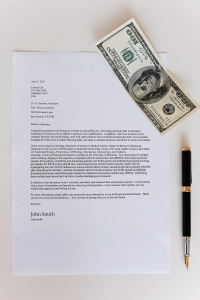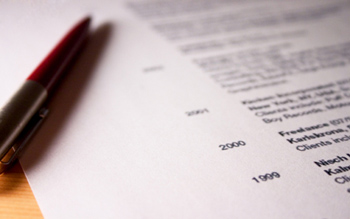Cover Letter Basics You Need to Know!
According to recent studies conducted by the Society for Human Resource Management, approximately 76% percent of HR managers would pay a great attention to cover letters. This means that in case of several cover letter errors, the whole positive impression about the applicant can be completely ruined in one single moment.
Our online resume service decided to go through some of the fundamental cover letter basics on how to write your cover letter and accomplish your cover letter objectives at their best. But first…
Why Are Cover Letters So Important?
A cover letter makes things a little bit more clearly to the employer than the actual resume. It tells him what type of job you are looking for precisely and displays your best skills, past working experience and other important qualifications.
Besides, the main reason why HR managers love reading cover letters is that they can spot something they haven’t seen in a resume. For instance, no one would actually explain in details reasons why you’ve had your gap years between employments or why you decided to improve your career. A cover letter, however, makes the explanations sound more appropriate and yet favorable to you.
Some of the recruiters ingeminate: a good cover letter would make a much stronger impression on them than a good resume, as it opens up the candidate’s personality, as well as provides his or her work ethic, meanwhile a single list of work history and achievements can’t.
Besides, an experienced recruiter from his very first glimpse on a cover letter would be able to define whether the person is a good match for the particular position or not. That’s why it is so important to avoid cover letter mistakes.
In other words, if the person has a clear understanding of the position’s duties and responsibilities he is applying for, he would have better chances to be invited for an interview than people without a cover letter included in their portfolio.
Finally, a well-written cover letter makes your personality more appealing to the recruiter. He would always think of you as a person he would like to get to know better, which means you’ll have much higher chances to receive an invitation to the interview.
Cover Letter Basics Tips
- Not naming your job title. All recruiters are busy going through tons of resumes and cover letters of applicants for the different job position. Name your own job title right in the beginning of your letter.
- Having one cover letter for all companies. Definitely, the worst thing ever. The whole point of the cover letter is to establish a personal connection between an HR manager and a potential employee. How do you think this can happen if you are simply sending the general draft? Instead, tailor each letter accordingly.
- Not rewriting the resume. There is no need to bring up the same point from your resume application to a cover letter just for “having one”. Cover letters require different pieces of information: perhaps more details on your skills. You can even write a story how you managed to solve the problems at work and contribute to your past employer.
- Saying straight that you need money. Recruiters don’t want to see people interested only in money, therefore speak more about other reasons why you need that job.
- Showing too much confidence. Sounding persuasive is reasonable and quite essential, but showing too much confidence can really work against you. Don’t overdo with that.
Also, be sure to check powerful resume verbs that can make your resume shine!
Secondary Cover Letter Tips
- Never start your cover letter with the phrase “To Whom It May Concern” – write a precise name of the employer.
- Showcase the skills and qualifications that would be most important for the employer.
- Start your cover letter with a powerful sentence.
- For each employer and job position, you must do an individual letter.
- Make a suggestion to meet the recruiter at the end of your letter.
- Before sending the letter, make sure you have carefully proofread and spell-checked it. Involve some of your friends to review the letter in the presence of typos and grammar mistakes.
These are the cover letter you need. Good luck and keep achieving your career goals no matter what!



